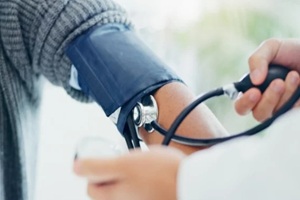 Caffeine from coffee, tea, energy drinks, and other sources is a daily habit for many. With about 87% of Americans consuming caffeine regularly, it begs the question: is your daily caffeine fix hurting your blood pressure management efforts?
Caffeine from coffee, tea, energy drinks, and other sources is a daily habit for many. With about 87% of Americans consuming caffeine regularly, it begs the question: is your daily caffeine fix hurting your blood pressure management efforts?
Understanding the relationship between caffeine and blood pressure empowers you to make informed choices about your intake.
Caffeine Can Temporarily Spike Blood Pressure
Caffeine is a stimulant that can cause a short-term increase in blood pressure lasting several hours. This spike happens because caffeine blocks adenosine, a compound that widens blood vessels. With less adenosine available, blood vessels constrict instead.
This restriction, coupled with caffeine’s adrenaline-boosting effects, temporarily increases the force of blood flowing through tighter vessels. The result? A noticeable jump in blood pressure, especially in people who aren’t accustomed to ingesting caffeine.
Factors Influencing Caffeine’s Impact
Caffeine sensitivity is highly individualized, making it tricky to apply blanket recommendations. These important factors determine how drastically caffeine affects your blood pressure:
- Caffeine tolerance: Your genes and prior exposure impact caffeine metabolism. Faster metabolizers and habitual coffee drinkers build a degree of tolerance and often experience less dramatic blood pressure reactions.
- Dosage and timing: Consuming higher caffeine doses increases the chances of blood pressure spikes. Afternoon intake can also hinder sleep and lead to healthy blood pressure dipping at night.
- Underlying conditions: If you have anxiety, hypertension, or heart issues, caffeine may trigger larger or prolonged blood pressure reactions compared to people without these conditions.
- Other Compounds: Coffee and similar beverages contain antioxidants and other plant compounds that may counterbalance caffeine’s effects on blood pressure to some degree.
Caffeine’s influence on blood pressure is not black and white. Tracking your individual responses by monitoring blood pressure before and after drinking caffeinated beverages will provide the personalized data you need to determine the right intake for you.
Health Risks of Excessive Caffeine for Blood Pressure
While caffeine only causes short-term blood pressure increases for most healthy adults, there are scenarios where high intake raises health concerns:
 Uncontrolled hypertension: If you have high blood pressure that is difficult to manage, caffeine can cause concerning spikes. These spikes exacerbate issues and cardiovascular risks.
Uncontrolled hypertension: If you have high blood pressure that is difficult to manage, caffeine can cause concerning spikes. These spikes exacerbate issues and cardiovascular risks.- Sleep disturbances: Excess caffeine, especially late in the day, can hamper sleep quality and healthy overnight blood pressure dips. Over time, this takes a toll on heart health.
- Increased heart disease risk: Research shows that regularly exceeding 400mg of caffeine daily poses a higher risk for cardiovascular events over many years due to spiking heart rates and blood pressure.
- Pregnancy: High caffeine intake is linked with increased risks of miscarriage and low birth weight from restricted blood flow in expectant mothers.
If you fall into any of the above categories or have other medical conditions, discuss caffeine intake with your doctor to establish safe personal limits.
Strategies to Drink Caffeine Without Hurting Blood Pressure
Thankfully, there are sensible strategies to employ so you can still enjoy daily caffeine without adversely affecting healthy blood pressure:
- Measure your intake: Calculate your total daily milligrams of caffeine from all beverages using nutrition info, caffeine databases, or free caffeine tracker apps.
- Set a daily cap: Limit intake to 400mg or less per day from all sources unless advised otherwise by your doctor. A study found that 400 mg or more of caffeine may increase your heart rate and blood pressure over time.
- Favor low-dose options: Opt for an 8-ounce coffee (80-100mg) or black tea (50mg) over high-octane energy drinks whenever possible.
- Avoid evening intake: Limit caffeine after 2 pm to preserve healthy overnight blood pressure dipping during sleep.
- Stay hydrated: Proper hydration minimizes blood thickening and viscosity, resulting in healthier overall blood flow.
- Monitor your blood pressure: Use at-home tracking tools to catch potentially concerning caffeine-related spikes early. Proactively cut back intake if needed.
- Talk to your doctor: Discuss caffeine, your current intake, medical conditions, and how to stay within personalized recommended limits for healthy blood pressure management with your physician.
As with anything diet-related, finding the right balance is paramount. Being mindful of caffeine’s seeming ubiquitousness, tracking your consumption, and staying below advised upper thresholds ensures you get to enjoy your daily fix without needlessly spiking blood pressure into concerning territory long-term.
Keeping Your Blood Pressure at Healthy Levels
Outside of smart caffeine habits, achieving and maintaining normal blood pressure hinges on healthy lifestyle strategies such as:
 Managing a normal body weight
Managing a normal body weight- Engaging in regular physical activity
- Minimizing dietary sodium
- Limiting alcohol intake
- Not smoking
- Managing stress levels
- Taking any prescribed blood pressure medications
Monitoring blood pressure regularly at home and with your doctor helps gauge if lifestyle therapy or medications require adjusting for ideal results. This comprehensive approach reduces the risk that uncontrolled high blood pressure poses to your future health and longevity.
Partner With Imperial Center Family Medicine for Effective Blood Pressure Management
Learning how components of your daily routine affect cardiovascular health allows you to make tweaks to preserve wellness long-term. As your partner in health, Imperial Center Family Medicine in Durham, NC provides compassionate, evidence-based guidance surrounding blood pressure management during all life stages.
Contact us today at 919-873-4437 or via our website. Our knowledgeable providers work collaboratively with you on lifestyle changes, potential supplements, and medications as needed for effective blood pressure management — caffeine habits included.
